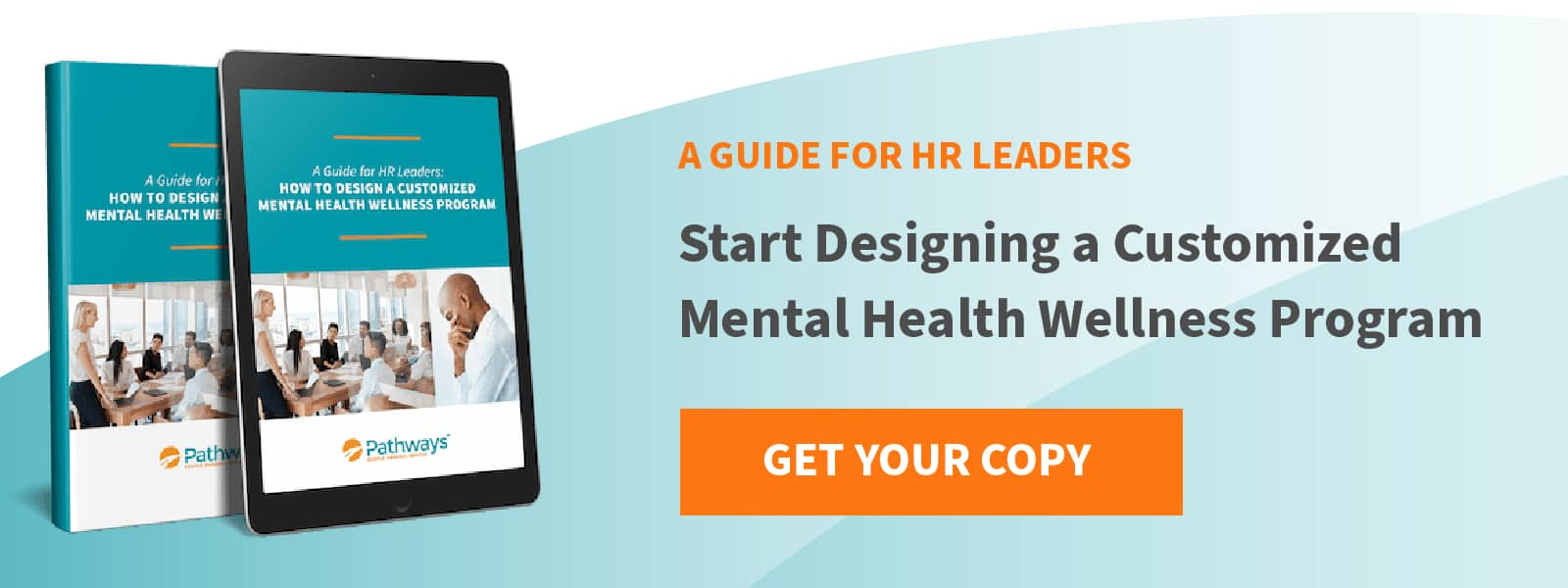ABA Well-Being Pledge: Addressing Attorney Mental Health
The American Bar Association (ABA) has made strides to improve lawyers’ mental health and reduce substance use in recent years.
In 2018, the ABA Working Group launched a well-being pledge to address mental health and substance abuse within the industry. Hundreds of law firms have since taken the ABA pledge and committed to providing employees mental health and substance use support. Any legal employer who signs the pledge must adhere to all 7-points of the framework for creating healthy work environments.
The focus areas included in the ABA well-being pledge framework target specific factors that contribute to attorney well-being. While the well-being pledge provides guidance, firms have the opportunity to choose how they implement each area of the framework. This flexibility allows legal employers to create a healthy workplace as they see fit while also addressing the needs of their employees.
The following guide outlines considerations for each aspect of the ABA framework, helping you to maximize your firm’s well-being commitment.
Provide Enhanced and Robust Education with Workplace Mental Health Training
A strategic partnership can provide a comprehensive mental health program with ongoing mental health education through training sessions and workshops. Robust mental health education should teach colleagues to identify and manage everyday mental health concerns, like anxiety and stress. In addition, enhanced training ideally includes tools and resources for employees to utilize as needed.
Management and leadership training is also essential. Senior leadership should learn to effectively support employee behavioral health to maintain a productive, safe and healthy
workplace. For example, a comprehensive mental health program with specific leadership support will offer live and on-demand educational training sessions, including workshops, presentations, and resources.
Provide Confidential Access to Assessments & Resources
Confidentiality concerns are why employees often choose not to utilize EAP (Employee Assistance Program) services. This concern is especially prevalent in the legal community, where normalizing mental health has only recently begun. In turn, the ABA pledge instructs legal employers to provide access to professionals beyond their EAP benefits where colleagues may be more likely to seek help.
Providing access to outside professionals can be done in tandem with your firm’s education and training efforts. Programming led by certified clinicians enhances the quality of the training and provides your employees access to experts. Furthermore, training sessions on substance use and mental health should always include guidance on seeking 1-to-1 professional assistance.
Demonstrate That Help-Seeking and Self-Care Are Core Cultural Values
Employee well-being isn’t static— and your approach to supporting positive mental health shouldn’t be either. Regular behavioral health training and support is the best way to cultivate a work culture that encourages help-seeking and self-care. In addition, offering ongoing well-being support can assure the long-term success of your well-being commitment.
A one-size-fits-all mental health approach will prove insufficient when it comes to changing law firm culture. Ignoring industry-specific issues and factors will make your well-being commitment an uphill battle.
For example, attorneys at family law firms will have different stressors than attorneys who practice corporate law. Therefore, it’s important to consider how aspects of your practice area, firm size, and existing resources may influence your employees’ mental health and wellness.
Highlight the Adoption of This Well-Being Framework to Attract & Retain the Best Lawyers and Staff
There is a well-documented business case for law firms to promote and prioritize lawyer well-being. As the conversation about mental health gains traction in the industry, maintaining a healthy culture will be crucial to recruiting talent.
Remaining competitive will depend on whether your approach to well-being becomes an active part of your firm’s culture. To ensure that your well-being commitment is practical, consider whether or not your initiatives are both sustainable and impactful.
To demonstrate your firm’s commitment to a healthy workplace, be sure to feature your initiatives on your law firm’s website and social media. Highlighting your ABA commitment can be a mutually beneficial part of your partnerships, too.
Develop Proactive Policies and Protocols to Support Assessment and Treatment of Substance Use and Mental Health Issues
The operative word here is proactive— and existing resources likely don’t cut it. EAPs and other wellness benefits, while critical, are reactive and utilized when employees are already struggling with their mental health, which is a missed opportunity. This aspect of the ABA pledge is about putting preventive measures in place so that fewer attorneys face mental health crises.
Consider taking a two-pronged approach to put proactive measures in place—focus on both employee and leadership training. Start with employee workshops that train staff on identifying, preventing, and managing mental health concerns.
Your second step should be implementing leadership training sessions that can help your management team identify and support employees who may be struggling. Proactive assessments should be available as part of both training sessions, including resources like behavioral inventories and skill-building exercises.
Reduce Expectations of Alcohol (Decentralize at Events)
Decentralizing alcohol at work events became a priority for the legal community when substance usage became a critical industry issue. Reducing expectations of alcohol consumption is not just about choosing new venues for events. Cultivating buy-in among colleagues will be an essential part of lowering expectations of alcohol consumption.
Substance use education that’s comprehensive and effective will provide employees with actionable strategies to utilize in their daily lives. In addition, reframing perspectives to manage expectations around substance use will make a difference in how changes to law firm events are received. Finally, educating employees about substance use will help with the transition to dry firm events.
Partner with Outside Providers
Fulfilling the ABA framework can be achieved through a strategic approach to one key component of the pledge: outside partnerships.
A comprehensive mental health program provider can help you implement all aspects of the ABA pledge. For instance, our Pathways at Work program helps law firms fulfill their ABA pledge to commitment and improve employee mental health through a series of customized workshops, live and on-demand training, interactive discussion groups, resources, and support.
We can help your firm eliminate the stigma associated with mental health and substance use to create a more inclusive workplace by proactively improving the wellness of your associates. Reach out today to see how we can help your law firm achieve its ABA pledge commitment and create a healthier work environment.



